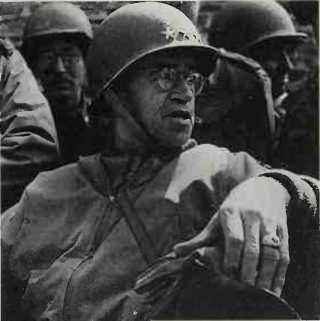By Russian troops was repulsed, but next day Japanese, Russian and American attacks succeeded. The British contingent, entering beneath the walls, via the Water Gate, was first into the beleaguered Legation. The Empress-Dowager fled and the Imperial City was occupied and looted.
The dispersal of the Boxers was completed by punitive expeditions (mostly by German troops) in September 1900—May 1901, while Boxer threats in southern Manchuria were answered by Russian occupation. The Boxer (Peking) Protocol of September 1901 provided for the punishment of proBoxer officials and for the payment of massive reparations. RO'N.
Boyington, Col Gregory (“Pappy”) (1912-87). US. Leading USMC fighter pilot of World War II, with 28 “kills” (including six with the Flying Tigers, 1941-42). From September 1943, Boyington commanded Marine Fighter Squadron 214 (called “Black Sheep”, because he could “tame” pilots rejected by other squadrons) in the central Solomons, flying F4U Corsairs. Shot down over Rabaul in January 1944, he became a now.

A “soldier’s general”: Omar Bradley
Bradley, General of the Army Omar Nelson (1893-1981). US. Bradley did not see active service during World War I but remained in the United States employed on troop training duties. During the 1930s he continued to specialize in this field, developing a rapport with the men under his command that led to the epithet of “soldiers’ general”. His qualities were greatly admired by Gen Marshall, the US cos, and in February 1943 Bradley was sent to North Africa where, in April, he took over the US II Corps. Reliable and conscientious, Bradley lacked flamboyance but not character.
In 1943 he was selected to command the American assault force in Operation “Overlord”. He endorsed the addition of a second American landing and insisted on the employment of airborne forces to link the two beaches. On D-Day Bradley was faced with arguably the greatest crisis of the landings when his forces landing on Omaha beach encountered major difficulties. However, he and his subordinates kept their nerve and secured the bridgehead. His initial breakout on July 25 was subsequently exploited by Patton’s Third Army.
From August 1 1944, Bradley was in command of US 12th Army Group, in the drive across France. He inevitably suffered in comparison with the high profile personalities of Montgomery and Patton and, in December 1944, following reverses in the Hiirtgen Forest and the surprise German offensive in the Ardennes, Bradley’s position seemed threatened. He was supported by Marshall, Eisenhower and Patton and his fortunes rallied as his troops crossed the Rhine at Remagen and joined up with Soviet forces in central Germany.
Promoted to full general on March 12 1945, Bradley ended the war in command of some 1,250,000 US troops, more than any other field commander had ever led into battle. In 1950 he was promoted to General of the Army and served as Chairman of the US Joint Chiefs of Staff until his retirement in August 1953. MS.
Bramall, Field Marshal Lord
(b. l923). Br. Chief of General Staff in 1982. Subsequently Chief of Defence Staff.
Brandenburg Organization. In
German army 1939-45, grew from a punishment company eventually to divisional size: composed of des--perate men, who were ready to take abnormal risks in the hope - seldom realized - that they would be pardoned and returned to normal units. Brandenburg troops operated, often in Red Army uniforms, on raids and sabotage ventures behind such fixed fighting lines as there were on the eastern front, sometimes with startling success.
Bratiano, Ion (1864-1927). Romanian. Prime Minister from 1909. In 1916 made secret alliance with Allies which resulted in Romania’s entry into the war on their side. Led his country’s delegation to the Peace Conference in Paris but resigned after failing to obtain the territorial gains which he felt were due to Romania. See also Romanian CAMPAIGN (1916-18).
Brauchitsch, Field Marshal Heinrich Alfred Hermann Walther (1881-1948). Ger. Commissioned into the German army in 1900, Brauchitsch served on the General Staff during World War I. Under Weimar, he became the Reichswehr’s Inspector General of Artillery; in 1937 he commanded Fourth Army Group. In February 1938, following the dismissal of von Fritsch for alleged homosexuality as part of Hitler’s “purge” of the high command, Brauchitsch became c-in-c, German Army. Hitler would have preferred the openly-dedicated Nazi von Reichenau, but Brauchitsch’s appointment was urged by those generals (notably von Rundstedt) who believed that he might support them in opposing the Fiihrer’s more precipitately aggressive schemes. However, Brauchitsch’s accession marked the beginning of the subjugation of the Army High Command (okh) to Armed Forces High Command (okw), dominated by Hitler and headed by his “lackey”, Keitel.




 World History
World History









